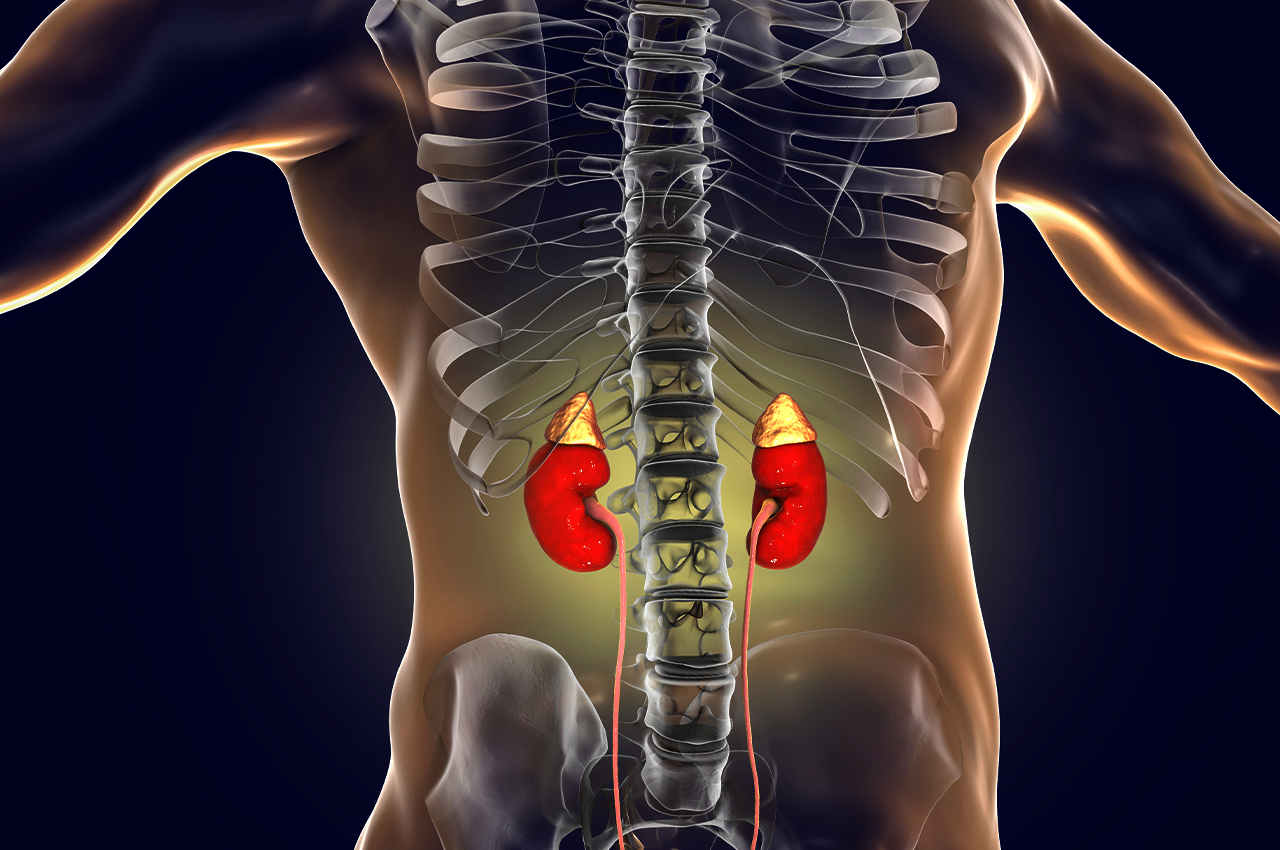It’s not even 7am and you’re already exhausted… you didn’t even have a late night! Perhaps a third cup of coffee will help keep you alert?
If you’ve been feeling fatigued lately or experiencing pain and/or unexplained weight loss, it’s possible you could have Addison’s disease.
Your adrenal glands, located on top of your kidneys, produce many of the hormones your body needs to function at its best. When your adrenal glands are out of whack, Addison’s disease develops because your body can’t produce enough of the hormones cortisol and aldosterone. These hormones are important because they’re in charge of giving instructions to almost every tissue and organ in your body.
The symptoms for Addison’s disease usually develop slowly over a few months, and include extreme fatigue, low blood pressure, decreased appetite, salt cravings, darkening of the skin, nausea and weight loss. You may also experience muscle and abdominal pain, depression and body hair loss.
You could be at risk for Addison’s disease if you:
- Take blood-thinning medication (anticoagulants)
- Have a chronic condition like tuberculosis
- Had surgery where a part of your adrenal gland was removed
- Have an autoimmune disease like Type 1 diabetes or Graves’ disease
- Have cancer
Prevention
Although Addison’s disease itself cannot be prevented, taking steps to prevent those conditions associated with it could lower your risk.
Managing these risk factors may prevent Addison’s disease:
- Treating fungal infections.
- Treating diabetes.
- Identifying cancer symptoms to prevent cells from spreading into the adrenal glands and bloodstream.
- Treating bacterial infection like tuberculosis
How is Addison’s disease treated?
Treatment depends on the underlying cause of your condition, but both lifestyle change and medication are used to manage the condition.
Untreated Addison’s disease may lead to a severe case of the disease. Once you have your treatment plan, you must follow it correctly.
If you develop other conditions related to Addison’s disease like high blood pressure, your doctor will need to treat that too.
Medications
Usually prescribed to decrease inflammation in the body, medications are taken for the rest of your life to effectively manage your disease. In addition, hormone replacements may be prescribed to replace any hormones your adrenal glands are struggling to produce.
Home care
It’s crucial that you always keep your medication on you. Make sure you have an emergency kit with you and add a medical alert card to let others know about your condition.
Lifestyle changes
Manage your stress levels and keep an overall healthy lifestyle. Talk to your doctor about stress-relieving techniques like yoga, Tai Chi or meditation. Simple exercises like walking or jogging are excellent stress busters too.

